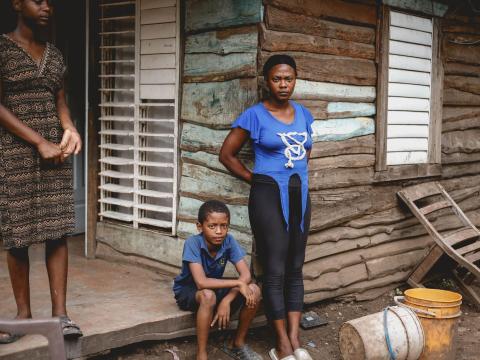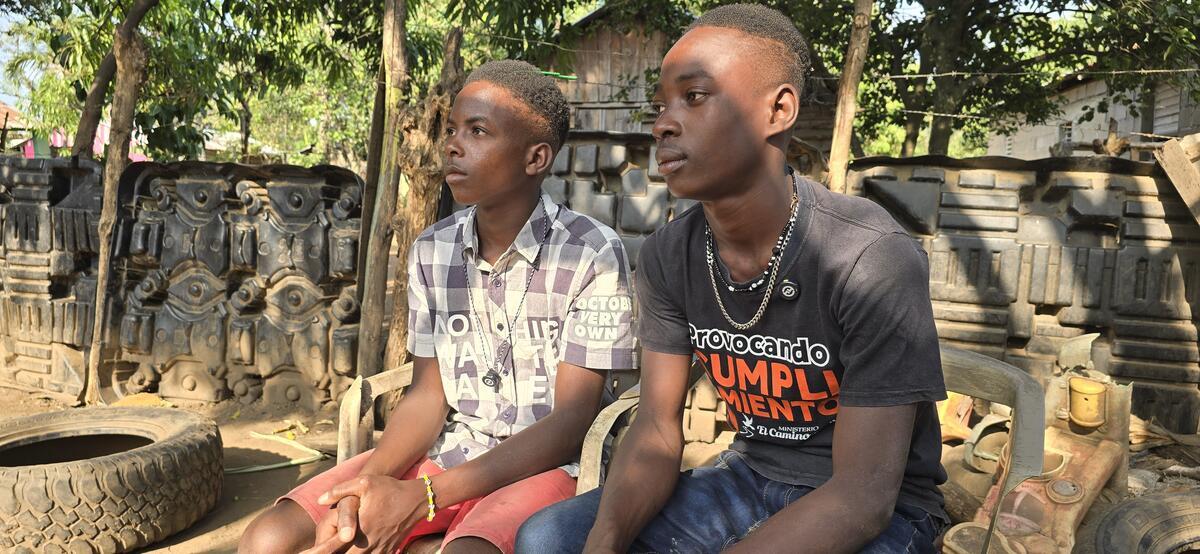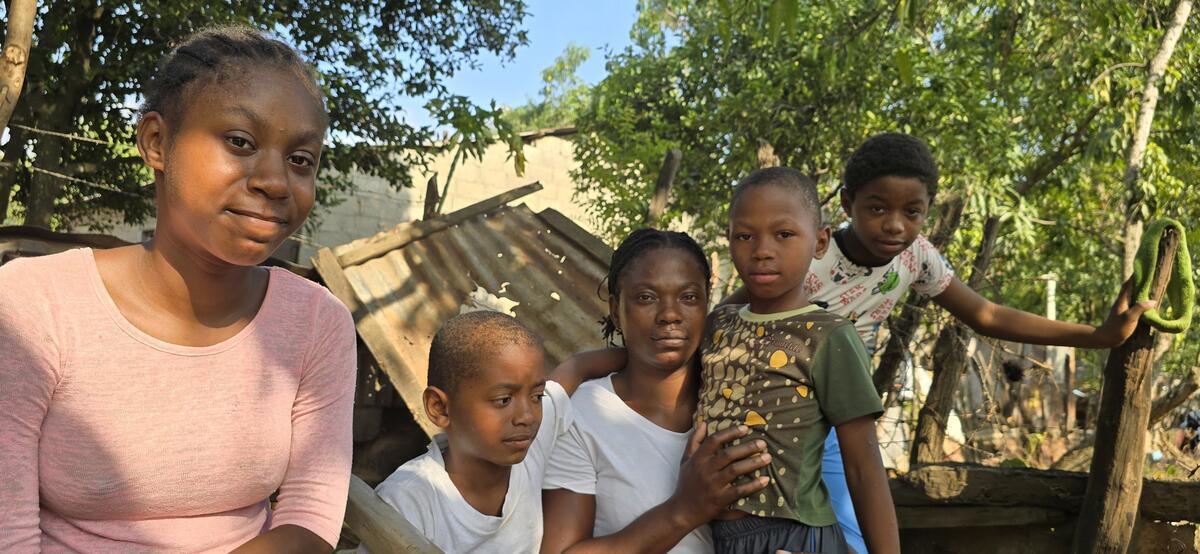The words no mother should have to say

“With a lot of shame I'm going to say it…sometimes my children go to bed without eating. And sometimes they eat only once a day.”
These are heartbreaking words from Alude, a single mum living on the border of Haiti and Dominican Republic, who is trying everything in her power to feed her children – even sorting through garbage for income.
Guilt, shame and feelings of failure are no stranger to the journey of parenthood. Parents are hardwired to want to meet their child’s needs – and parents everywhere question whether they are doing enough.
For 29 year old Alude, who is a single mother to four four children, living in a dilapidated house surrounded by mountains of plastic waste and bottles, lacking both water and electricity, the guilt she feels in not being able to put food on the table is crushing.
“In order to eat, we have to go to the garbage to pick up iron [to sell],” she says. “You see there, old iron for us to be able to eat… because there's no work.”

Originally from Haiti, Alude migrated to Dajabón, a border community north of the Dominican Republic a year ago, fleeing the violence and hunger in her homeland. Today, in addition to battling hunger, she and her children face the constant threat of deportation due to strict immigration measures.
This is a heartbreaking situation that no mother should face. But Alude’s burden just got heavier: in addition to her own children, she takes care of two nephews who recently arrived from Haiti. They walked for days, alone and hungry, to reach their aunt, in search of food and security that was scarce in their country.
The brothers are among approximately 2,000 unaccompanied minors who attempt daily to cross the border separating Haiti from the Dominican Republic. They embark on this dangerous journey to escape the violence unleashed by criminal gangs in Haiti's capital, Port-au-Prince, where over 2,500 people have already fallen victim.
“In the capital of Haiti, no one can go out to look for something to eat, it's not safe,” says Alude. “A lot of people that are dead over there, people are afraid to go out to look for food.”
As of May 2024, the crisis in Haiti has reached unprecedented levels due to widespread gang violence. An estimated 80% of the capital city is under the control of gangs, including the international airport, which remains closed. As many as 5.5 million people, including 3 million children, are in urgent need of humanitarian aid. The country, which was already facing political instability and a cholera epidemic, is experiencing intense impacts like food shortages and limited access to basic services.

Food prices in Haiti have soared - the World Food Programme reports a 21% increase since January. How can food be bought when six out of ten Haitians live in poverty? For Alude, the only option was to flee but what she came to was hardly any better.
“There are days when we only eat food once a day before going to sleep, and there are also days when we wake up and wonder if it will be the same again,” says Alude. “But we thank God for everything; we need to have faith in God because God knows what we are facing.”
World Vision has been working in Haiti for over thirty years, providing support to the many crises the country has faced. From earthquakes to droughts to cholera epidemics to gang violence, remaining flexible to the needs of Haiti is key to our response.
Right now, Haitian parents are struggling to secure the basics needed to keep their children alive. By becoming a child sponsor to a family or community in Haiti , you can not only provide life-saving food to parents like Alude, but also help some of the most vulnerable communities to tackle hunger and create communities where children can thrive.
Enough is enough.